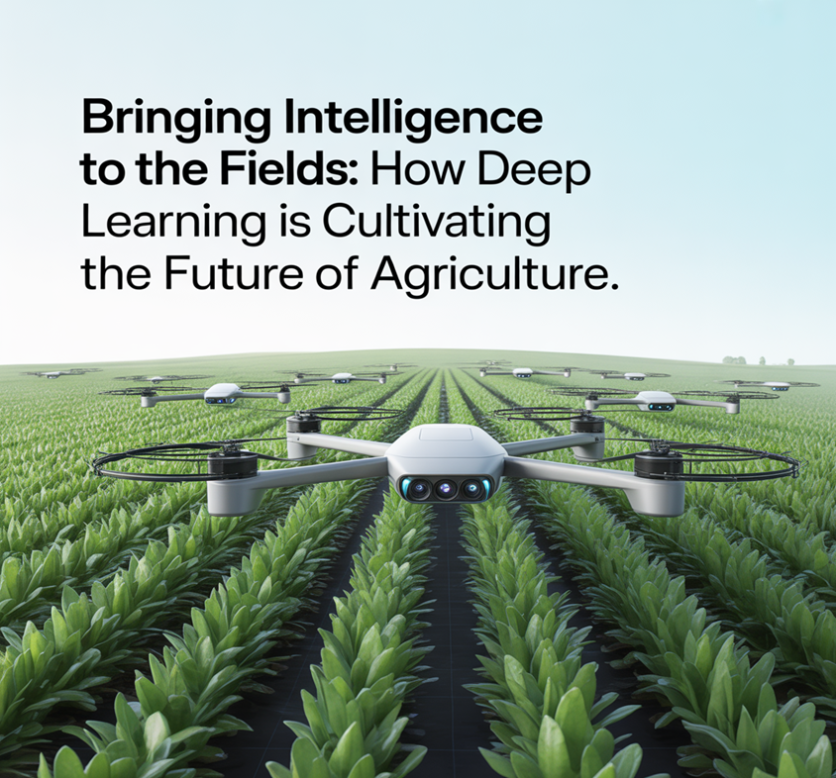
In this digital world, Tenny Enoch Devadas emerges as a visionary in the integration of technology for sustainable development. At a time when climate volatility and food insecurity threaten global stability, his work explores how deep learning is revolutionizing agriculture. By harnessing AI-driven models and demonstrating how farming can evolve to not only enhance productivity but also uphold ecological balance and economic resilience. His insights illuminate a transformative path forward—where innovation in agriculture serves as a pillar of sustainable progress.
Weather Wisdom Through Neural Networks
Modern farming is inseparable from the weather, and deep learning is turning this unpredictable variable into a manageable asset. Using Convolutional Neural Networks (CNNs) and Long Short-Term Memory (LSTM) models, deep learning systems now analyze satellite imagery, historical weather patterns, and real-time sensor data. These techniques result in hyper-local forecasts that help farmers make data-informed decisions about sowing, irrigating, and harvesting. With improved accuracy in predicting both short-term and seasonal weather changes, these models provide a technological buffer against climate uncertainties.
Understanding the Soil Beneath Our Feet
The health of crops begins with the soil, and here, too, deep learning is proving transformative. Fully Convolutional Networks (FCNs) and Recurrent Neural Networks (RNNs) are employed to assess soil moisture, nutrient content, and organic matter using a blend of drone imagery, satellite data, and in-situ sensors. This rich, multi-layered analysis enables precision in fertilization and irrigation strategies, ensuring resources are used efficiently and only where needed. The result? Improved crop yield and minimized environmental degradation.
Smarter Crop Decisions Powered by Data Fusion
Selecting the right crop for a given season and location is no longer a gamble. Deep learning models now merge disparate data streams—soil metrics, weather forecasts, historical yields, and market trends—into a single, actionable recommendation. Hybrid neural networks that combine CNNs with LSTMs offer tailored guidance on what to grow, when to plant, and at what density. These adaptive models continuously improve with fresh data, providing a dynamic decision-support system that evolves with every harvest.
Forecasting Risks Before They Strike
One of the standout applications of deep learning in agriculture lies in risk management. By parsing large-scale datasets, these models can anticipate pest outbreaks, extreme weather events, and market volatility. For instance, early detection of pest activity using satellite and ground-level images allows for timely intervention, reducing crop damage and pesticide overuse. Likewise, LSTMs help predict droughts or frosts well in advance, enabling protective measures. This predictive capacity arms farmers with foresight, turning potential crises into manageable challenges.
Precision Resource Management: Less Is More
Efficient use of water, fertilizers, and pesticides is a hallmark of sustainable farming, and deep learning excels in enabling this. CNNs assess crop stress from above, while reinforcement learning algorithms determine optimal irrigation cycles. Smart fertilizer applications ensure nutrients are delivered based on specific crop stages and soil needs. The cumulative effect? Lower costs, reduced environmental impact, and healthier ecosystems. This shift towards precision agriculture enhances both profitability and ecological stewardship.
Transforming the Agricultural Supply Chain
Deep learning is not limited to fields and farms—it's redefining the logistics of agriculture. Accurate yield predictions, powered by CNNs and RNNs, improve planning for storage, transport, and labor deployment. These forecasts are dynamically updated as the season progresses, aligning logistical decisions with real-time data. Additionally, models facilitate efficient inter-regional crop exchange by analyzing production data, demand forecasts, and transportation variables. This enhances food availability while reducing spoilage and waste across the distribution chain.
Sustainability at the Core
Deep learning is revolutionizing sustainable agriculture beyond just yield and efficiency. By harnessing predictive analytics, it enables smarter crop rotation, enhances soil conservation, and safeguards biodiversity. Advanced algorithms generate tailored strategies to improve soil health and mitigate degradation, while also mapping biodiversity hotspots and promoting pollinator-friendly layouts. These efforts harmonize productivity with ecological responsibility. Integrating data from satellites, weather stations, and soil sensors, deep learning equips farmers with precision tools to reduce waste and protect natural resources.
In conclusion, Tenny Enoch Devadas's AI in farming isn't merely a technological advancement—it's a commitment to long-term sustainability. His perspective underscores that in today's intelligent era, cultivating environmental awareness is as crucial as cultivating crops for a secure, resilient global food system.
ⓒ 2025 TECHTIMES.com All rights reserved. Do not reproduce without permission.




